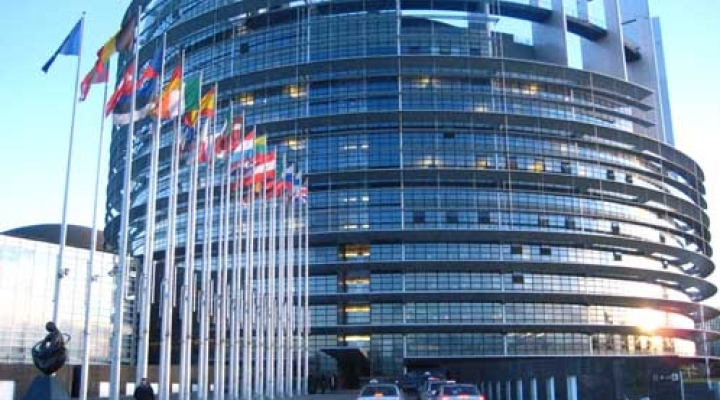Minority protection in the EU should be based on the model of the Roma Strategy
The January plenary session of the European Parliament (EP) in Strasbourg was dominated by mid-term elections inside the house. MEPs elected a new President, while the committees and working groups also changed their leader.
The former co-presidents of the Intergroup for Traditional Minorities, National Communities and Languages, Swedish liberal Carl Hagglund and Hungarian EPP member Kinga Gál handed over their mandate of co-chair to Hungarian socialist Csaba Tabajdi and Corsican French green MEP François Alfonsi. in the meeting on the 19th of January 2012. The former co-presidents presented, as an activity report, a recently edited volume on the major events in the field of minority protection, entitled "Traditional Minorities, National Communities and Languages. The issue raised in the European Parliament's Intergroup, 2009-2011, ISBN 978-963-08-3185-7, Brussels-Budapest, 2011, 71 p.
The main goal of the Intergroup for the next two years is to urge the European Commission (EC) to prepare, on the request of the European Parliament, a strategy for the protection of ethnic national minorities in Europe, based on the Roma Strategy 's model..
The guest of the meeting was Jonathan Hill, member of the cabinet of European Commissioner Androulla Vassiliou, responsible for Education, Culture, Multilingualism and Youth. Hill presented in details the EU programme "Erasmus for All" on education, training, youth and sport. For More information on the programme see the following link: http://ec.europa.eu/education/erasmus-for-all/doc/com_en.pdf
Erasmus for All will run between 2014 and 2020. It has a budget of over 19 billion euros, representing 2% of the entire EU budget. This complex programme opens a new chapter in the EU financing mechanism. Upon its creation, the EC strived to correlate EU programmes with flexible solutions through simple and streamlined structures in order to ensure synergy between transnational actions and structural funds, as well as national and regional measures. The main challenge of the programme lies within the means to answer multiple crisis in Europe through investment into human resources in the fields of education and training with the enforcement of the principle of mobility and strengthening of European values. Based on the express request of commissioner Vassiliou, Erasmus for All , through its conception, will put an emphasis on the importance of linguistic performance as well as linguistic diversity.
Members of the Minority Intergroup saluted the programme, but they called the attention upon the need to support regional and minority languages and asked to take into account the needs of speakers of such languages formulated by representative regional authorities when setting the programme's details..











